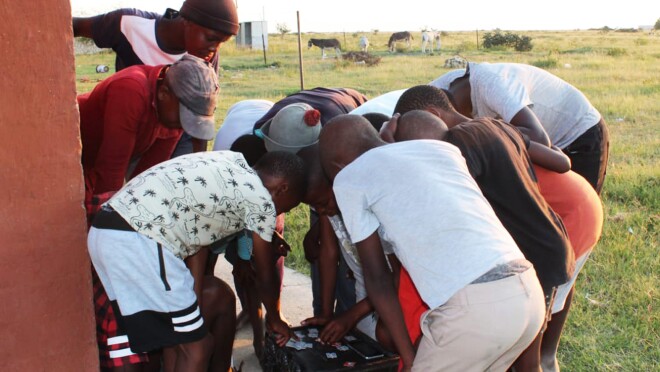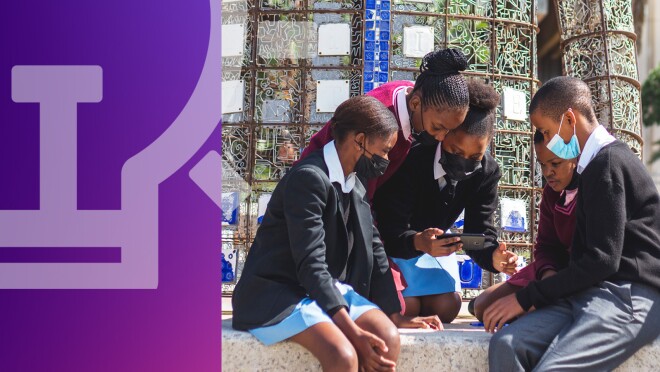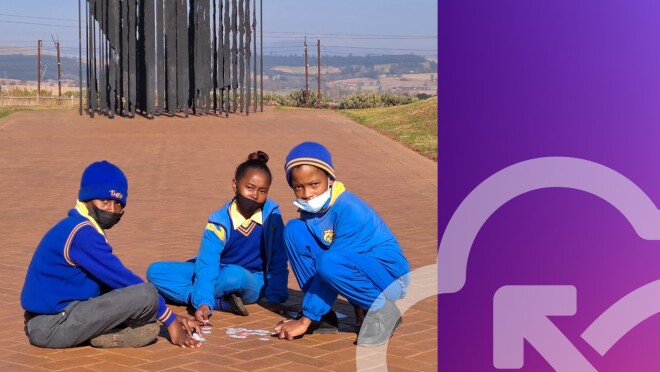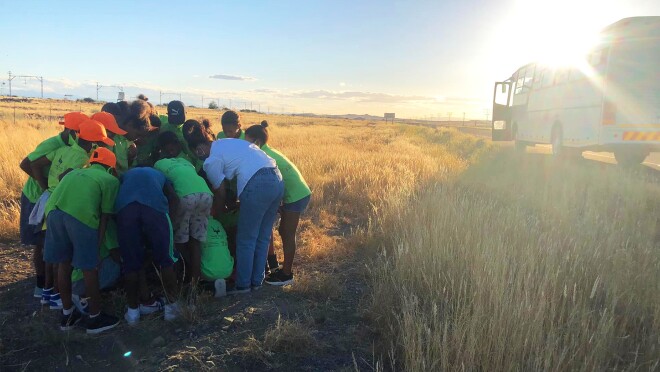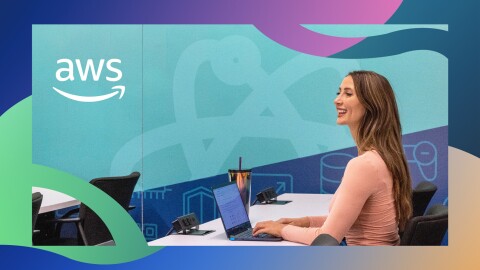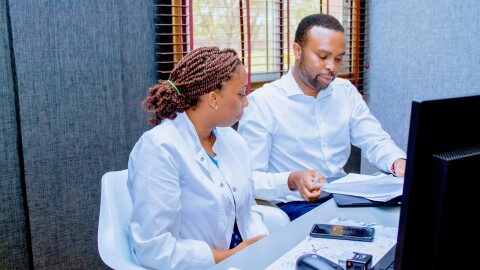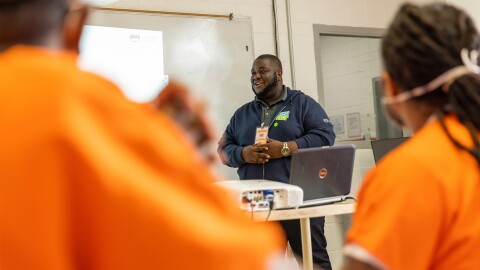RANGERS—an offline smartphone game app that challenges players to catch a poacher with a net to save a rhino—is helping thousands of young people across South Africa learn problem solving and coding, without using a computer.
Developed by learning initiativeTangible Africaand supported by Amazon Web Services (AWS), the world’s most comprehensive and broadly adopted cloud offering, the low-cost app helps children gain key digital skills in regions that don’t have the kind of equipment or services traditionally used for teaching information technology (IT).
According to Jean Greyling, an associate professor of computer science at Nelson Mandela University (NMU), who leads Tangible Africa, of the 25,000 primary and secondary schools in South Africa, 16,000 do not have access to a computer. In addition, many of these schools do not have internet, and they often have limited electricity.
The RANGERS app addresses these obstacles. Available on Android phones—Africa’s most widely used operating system, with over 80% market share—the app is easily accessible and practical for students and teachers. It’s also fully functional offline and designed to engage learners.
Earlier this year, more than 17,000 young people played RANGERS as part of Coding4Youth, a coding tournament launched by the NMU computer science department in partnership with the Leva Foundation and sponsored by theAWS InCommunities program.
“We were coding in stadiums, coding with school choirs in their choir camps, and even coding with learners who were just hanging out in their villages,” said Lusanda Maqungo, one of more than 40 coding evangelists trained by Greyling and his team to go into schools and give presentations on coding to students and their teachers.
“The students were so excited and hungry to learn,” said Maqungo. “They are always willing to drop everything and code. At one tournament, a young boy refused to go home until he reached level 30. Then the next day when he arrived, he began teaching others how to get through the levels. This is exactly the impact we want to have.”
Funding from AWS enabled Tangible Africa to hire 10 coding evangelists like Maqungo over the last two years. In addition, recent support from the government in South Africa helped the organization recruit an additional 30 people.
“We train schoolteachers to help their students learn about coding basics and principles,” said Greyling. “However, we started to realize that although many teachers were leaving the training sessions full of enthusiasm, they would arrive back to a reality with scarce resources to teach coding alongside a packed curriculum. This inspired us to train other individuals who were not teachers, who had the time and energy to go in and support them.”
Greyling said that before he set up Tangible Africa, he would visit schools to talk about computer science and programming, but he found a big disconnect.
“These kids had very little awareness of what a computer was and what you could do with one, let alone what careers existed in this field. We talk about the digital divide a lot, but if we rely on computers and laboratories for education, we’re simply widening that divide. This is why our model doesn’t rely on computer equipment.”
有形的非洲的下一个事件,由AWS, will be held on Mandela Day on July 18. Greyling expects at least 5,000 learners to take part in tournaments across South Africa and other African countries, including Tanzania, Zimbabwe, and Zambia.
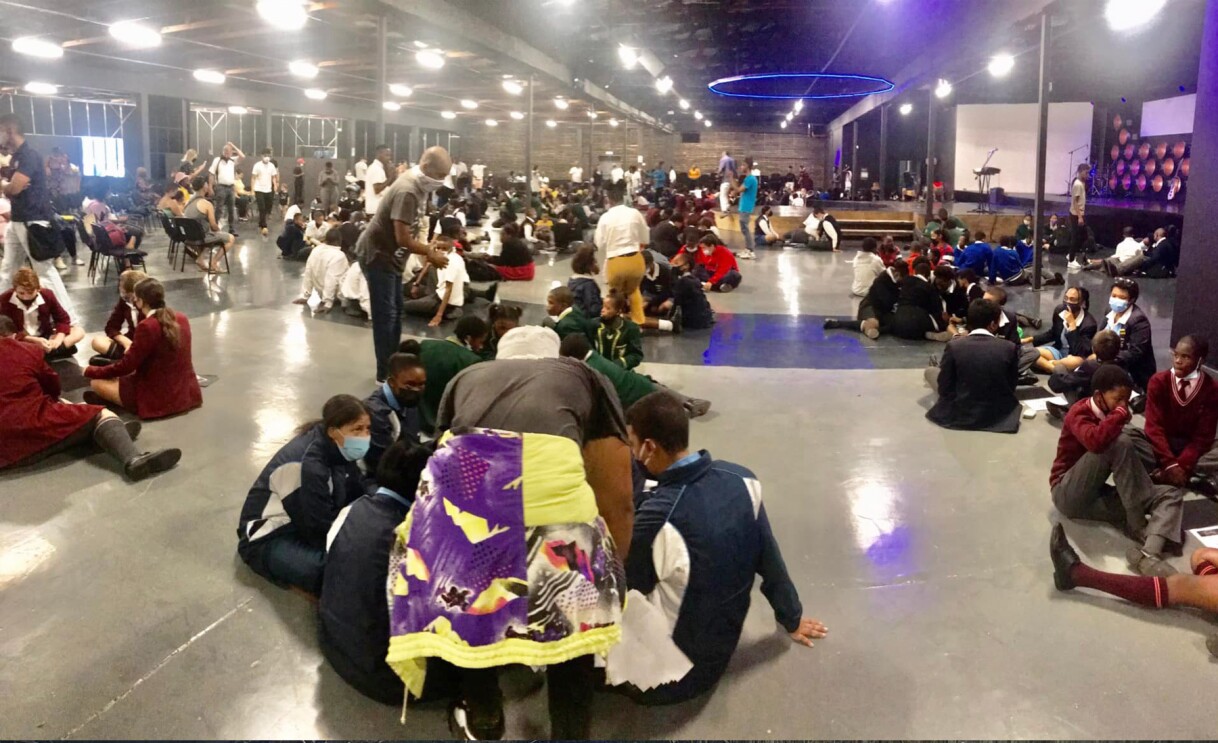
“This is not conventional coding,” said Greyling. “As a university professor, I would much prefer a learner arrive at one of my lectures having been taught how to problem solve, rather than a learner who can write lines of code but doesn’t know how to problem solve. Conventional coding can be taught at a later stage. Even at a young age, learners need 21st-century skills such as strategic thinking, communication, teamwork, and computational thinking to equip them well for the future.”
有形的非洲的终极目标是指学习者s from underrepresented communities their potential and introduce them the idea of pursuing a career in IT and computing.
“It’s fantastic to empower young people and introduce them to a coding career,” said Greyling. “Even if they are only with us for a year, they leave the program energized and inspired, knowing they helped make an impact.”
Strengthening local communities
AWS InCommunitiesis a community outreach program established by AWS to make a positive impact in local communities where the company operates data centers. In South Africa, AWS previously worked with theCenter of Science and Technology in Cape Town, South Africa, to help students learn Python codingand then facilitated their online studies on mobile devices during the COVID-19 pandemic.
AWS还在开普敦举行女子科技的一天nearly 200 girls before the pandemic and runs technology-related classes, mentorships, and other initiatives in many local schools. In addition, AWS employees actively support many environmental, educational, and social causes in their local areas through theAWS employee engagement program.


